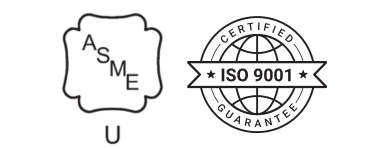
In the fast-evolving pharmaceutical landscape, one shift is undeniably leading the charge: automation in pharmaceutical manufacturing. As the Indian pharmaceutical sector cements its position as a global manufacturing hub, the need for speed, accuracy, hygiene, and compliance has never been more urgent. Automation is no longer a futuristic add-on; it has become the backbone of smart manufacturing and India’s pharma industry is embracing it with full force.
From automated filling lines and robotic packaging to intelligent cleaning systems and real-time monitoring through PLC/SCADA systems, automation is revolutionizing how drugs are produced, stored, and distributed. It’s a transformation driven by more than just efficiency automation directly addresses critical demands of safety, scalability, and Good Manufacturing Practice (GMP) compliance. GAMP (Good Automation Manufacturing Practice)
Over the past decade, several factors have converged to push the adoption of automation in pharmaceutical manufacturing:
India’s pharmaceutical sector is rapidly upgrading infrastructure and integrating digital technologies. Here are some pharma manufacturing trends that are reshaping the industry:
Indian pharmaceutical equipment manufacturers in India are stepping up with robust, customized solutions to meet this growing demand for automation. One such player is Pharmatech Process Equipment, a company committed to delivering advanced process systems across the pharmaceutical, biotech, food, and cosmetic industries.
Pharmatech’s offerings ranging from automated ointment/cream manufacturing systems (Viscomill) to CIP/SIP systems and API reactors (Bhaveshbhai to confirm if we can add skidded system or other products with automated system) are designed with hygiene, precision, and scalability in mind. Their equipment adheres to international standards and is tailored to the unique process requirements of each client. As a trusted name in pharmaceutical equipment manufacturers in India, Pharmatech Process Equipment is helping Indian and global firms alike transition toward smarter, safer production environments.
The momentum toward automation in pharmaceutical manufacturing in India is undeniable and irreversible. As production volumes increase and compliance requirements tighten, the integration of intelligent systems is no longer optional but essential.
By embracing automation, Indian pharma firms can enhance global competitiveness, reduce operational risks, and produce high-quality medicines at scale. Whether you’re upgrading an existing plant or planning a new one, partnering with experienced pharmaceutical equipment manufacturers in India can make all the difference.
Ready to explore the next-generation process solutions?
Partner with Pharmatech Process Equipment for end-to-end automation systems that combine innovation, compliance, and customization. Reach out to our team today to discuss your project.
+(91) 9909925266
ppe@pharmatechprocess.com
Plot No:9 & 10, Mahagujarat Industrial Estate, Village: Moraiya, Sarkhej- Bavla Road, District: Ahmedabad, Gujarat-382213, India.

Developed and Managed by Xenia Consulting